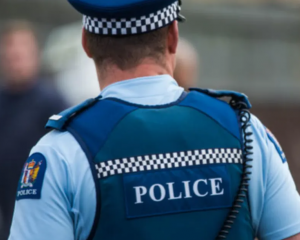
Associate Justice Minister Nicole McKee is defending the coalition government's new 'three strikes' law, saying if violent criminals are "locked up in prison" they will not be in communities "creating harm and creating more victims."
The government wants to toughen its new version of the law - which was repealed in 2022 by the previous government - in order to capture more offenders, following select committee submissions.
The revised version would apply only to sentences of at least two years, give judges more discretion in cases where harsh outcomes would be "manifestly unjust", and bring in some benefit for offenders on their final strike to plead guilty.
McKee now plans to lower the qualifying sentence threshold for the first strike, from 24 months imprisonment across the board to 12 months, after listening to submitters.
She said the coalition had received feedback saying it "hadn't gone far enough" with the new three strikes legislation.
"We've heard from many people, especially through emails to my office, which has stated that this [the new regime] has not gone far enough, that we needed to make it stronger and strengthen it for the victims in our communities.
"They're basically saying that there are a number of very serious violent and sexual offenders who they think would bypass the three strikes regime."
McKee said that was not their intent.
"The intent of this government is to make sure that we are tough on crime, tough on criminals, and support our victims."
The coalition has agreed to two modifications to "ensure that we capture the worst of the worst violence and sexual offenders, while still ensuring that we're not capturing the lowest level offender," said McKee.
McKee defended her decision to lower the threshold, despite saying in June that 24 months struck the right balance. She also acknowledged at the time that there was concern that in some cases the regime was capturing offending that was too low-level, resulting in disproportionately harsh sentences.
McKee said she changed her mind after "listening to the people and what they're saying".

She said this was why the 12-month threshold had only been made for the first strike. The 24-month threshold remains for the second and third strikes.
The second strike means no parole, and for a third strike, offenders will have to serve the maximum penalty without parole.
Lack of evidence no deterrent
When asked whether three strikes - and the threat of harsher penalties - was about deterrence or punishment, given there was little evidence it worked, the minister said more data was required in order to make the assessment.
"In order to be able to have the data on that, it means we have to have a regime that is activated for quite some time.
"If you think about the fact that the second strike, for example, means a person will be denied parole, and a third strike means that a person must serve maximum with no parole. Then it means that they need to actually serve that time."
She said there had not been a chance to be able to look at long-view data to say whether it's "working as effectively as we think it should".
But "we think that it will, we think that it does", she said.
"It's really simple, you lock them up, they're not out on our streets committing crime, so that's got to work."
The second change was to reactivate the warnings from the previous three strikes regime where those people meet the new threshold of this latest legislation.
"So carrying over the strikes where they are currently going to meet the new regime."
The Bill is still currently before Select Committee.














